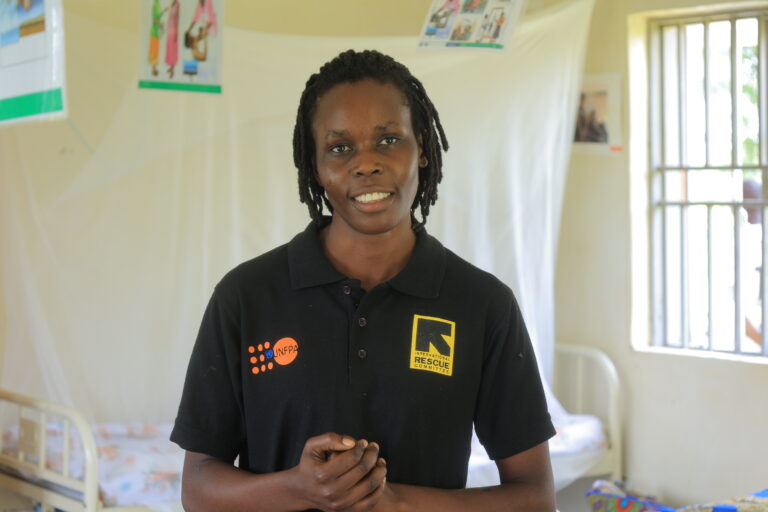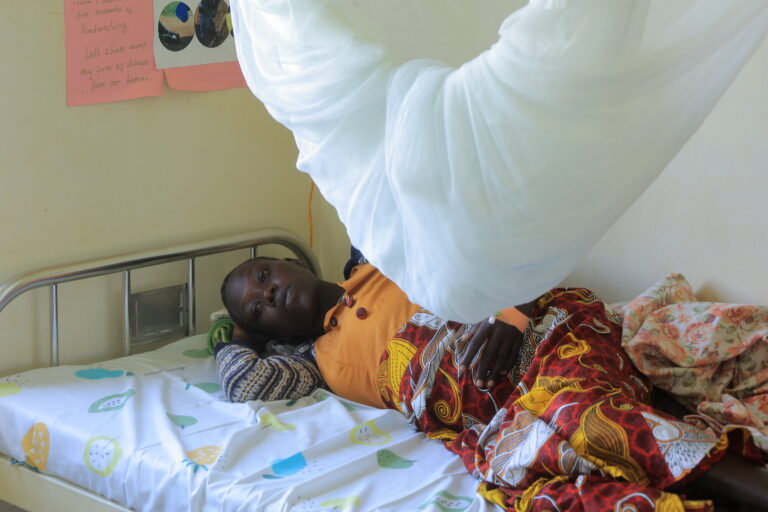

Pregnant women are particularly vulnerable to malaria, which can lead to miscarriage, premature delivery, low birth weight, congenital infection, and perinatal death. This is the reason midwives like Scovia Acako are so invaluable to malaria control and elimination efforts worldwide. Ms. Acako delivers a comprehensive malaria program that includes a course of anti-malarial medication, known as intermittent preventative treatments for pregnant women (IPTp), to each expectant mother in her ward.
“We give the three tablets of IPTp to prevent malaria for all mothers above actually 13 weeks in second trimester. We give it in intervals of four weeks until delivery,” Ms. Acako said.
Ms. Acako also distributes insecticide-treated bed nets to each expectant mother, when nets are available. “From May up to mid-August, we did not have nets. So you realize when you’re offering a package, it’s not full. That one makes me feel bad as a midwife because the mother is at risk.”


Still, Ms. Acako is pleased to see progress being made in this region in the area of maternal health. “I was inspired to become a midwife because of where I grew up. It was very rare to get a midwife. And most times when mothers go to deliver, the midwife is often on leave and not at the health facility. So there was a lot of home deliveries, as I was growing up. So I said, but what if I become [a midwife]? That’s what inspired me.”
Today, 98% of deliveries in Uganda take place in health facilities, per WHO, compared to 38% in 2000.
This report is part of a special initiative, Healthy Start for Refugee Children, that aims to deliver essential health services to one million refugee and displaced children living in Uganda, Ethiopia, and South Sudan. We have launched this initiative in partnership with the UN Foundation’s Shot@Life campaign and the UN Refugee Agency (UNHCR).